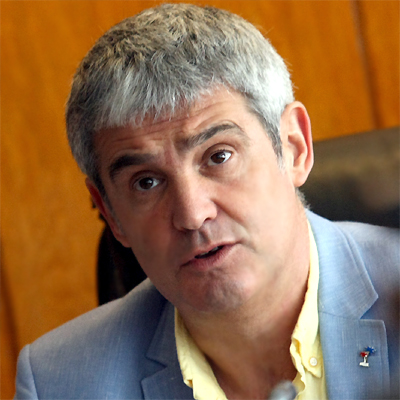"I want 50 euro pay rise for a better 2017!" – this is what greeting cards sent to many Bulgarian employers on the occasion of Christmas by CITUB - the largest trade union in Bulgaria, read. According to the union, there was social dumping in Bulgaria and the cost of labour is too low, not meeting the rate of productivity rise.
The conclusion is that this country lags behind significantly when wages are concerned, while productivity of Bulgarian labor in some sectors is even higher in comparison to countries with better-developed economy. According to Eurostat data for labor productivity, Bulgaria is one of the top positions in the processing industry. Wages in the processing industry, however, are between 50 and 80 percent lower than those in other member states. Unions point out that a worker in Bulgaria in a busy enterprise of the processing industry receives € 395 a month, while in Spain for the same work a worker will get some € 2,200, or about five times more.
 Given the reported productivity growth of 4 percent last year, union leaders call for rise of salaries in all sectors. According to them, Bulgarian economy allows for 75 euro more to be paid to every worker a month. According to Plamen Dimitrov, President of CITUB, such an increase would mean ten percent increase of the average salary in the country
Given the reported productivity growth of 4 percent last year, union leaders call for rise of salaries in all sectors. According to them, Bulgarian economy allows for 75 euro more to be paid to every worker a month. According to Plamen Dimitrov, President of CITUB, such an increase would mean ten percent increase of the average salary in the country
"We published data for the entire period of transition. Statistics show labor productivity changes during the last 27 years; we studied value added profits in some sectors and proved that Bulgarians produce two times more than they averagely get as payment. In heavy industries productivity is 3-4, up to 5 times higher. These are facts that everyone can see. On our website, entitled "I want hundred levs", one can find information about each sector. When numbers speak some observers must be silent. When over the years people have not received as much as they produced, the business has appropriated the added value. Now comes the time when the labor market dictates another reality. I am optimistic that earnings will grow for two reasons. On the one hand the economy can afford to pay more. On the other - the labor market lacks experts and this means incomes must rise if employers want to find specialists, no matter whether they attract them from Bulgaria or abroad.”
Incomes are far ahead of productivity is the positions that employers defend, represented by Bozhidar Danev, Chairman of the Bulgarian Chamber of Commerce.  "This year there were exceptional opportunities beneficial for Bulgarian economy, but we achieved moderate growth in gross domestic product," he says. Among beneficial factors worldwide, he points the collapse of fuel prices by almost 50%, which is important for Bulgaria’s energy-intensive economy. The armed conflict in the Middle East also meant boost in the arms industry. "Light in the tunnel during the new year is seen in the serious restructuring of exports of Bulgaria," Bozhidar Danev says and adds:
"This year there were exceptional opportunities beneficial for Bulgarian economy, but we achieved moderate growth in gross domestic product," he says. Among beneficial factors worldwide, he points the collapse of fuel prices by almost 50%, which is important for Bulgaria’s energy-intensive economy. The armed conflict in the Middle East also meant boost in the arms industry. "Light in the tunnel during the new year is seen in the serious restructuring of exports of Bulgaria," Bozhidar Danev says and adds:
"In the past Bulgaria exported mostly raw material- fuel, wheat, metals, concentrates. For the first time exports of the mechanical engineering industry and the electrical industry came to the first places in the chart. Unfortunately, in recent years labor productivity has risen by 1.3%, while growth of incomes reaches 7-8 percent. So, incomes are far ahead of productivity."
English: Alexander Markov
The two most sought-after currencies by Bulgarians in 2024 remain the US dollar and the euro, just as in 2023. The Turkish lira, the Romanian leu and the Serbian dinar were also very popular, followed by the British pound and the Swiss franc. This was..
The overall business climate indicator in Bulgaria has increased in December by 1.7 points from 17 percent to 18.7% compared to November . An increase in the indicator was observed in the industry sector by 1.9 points, in retail trade by 5.7 points and..
The National Assembly postponed the discussion and voting of the most important fiscal law of the land – the national budget for 2025 – for next year. “If we do not have an approved budget by 19 January, then everything in the country will grind to a..
The Bulgarian National Bank (BNB) has posted, to its website, the answers to important questions connected with the adoption of the euro and the..
The euro area annual inflation rate was 2.5% in January 2025, up from 2.4% in December 2024. In Bulgaria, it accelerated more sharply in January to 3.8%..
89% of German investors in Bulgaria would choose Bulgaria again for their investments . This is indicated by a study by the German-Bulgarian Chamber of..

+359 2 9336 661
